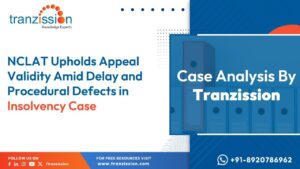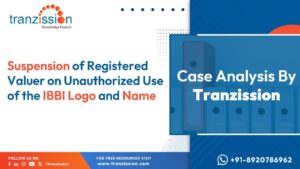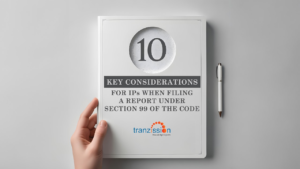
Identifying Legal Gaps in the IBC (Part 2): Insolvency Professionals Cannot Function as Resolution Professionals or Bankruptcy Trustees

Table of Contents
The significant legal gap in the Code gives personal guarantors the means to challenge the roles of insolvency professionals as Resolution Professionals or Bankruptcy Trustees under Part III of the Insolvency and Bankruptcy Code, 2016 (IBC). This critical issue demands immediate attention from the Ministry of Corporate Affairs and the Insolvency and Bankruptcy Board of India (IBBI), as it threatens to compromise all pending or ongoing insolvency and bankruptcy cases.
The Insolvency and Bankruptcy Code of India, designed to streamline insolvency and bankruptcy processes, has significantly reshaped the management of financial distress and insolvency. However, certain gaps within the Code, particularly concerning personal guarantors to corporate debtors, raise significant concerns about its efficacy and fairness.
Notification of IBC Provisions and Their Impact
The Central Government has notified most provisions of Part III of the IBC, except for sections 80 to 93, which remain unnotified for personal guarantors to corporate debtors. This selective notification has resulted in the full enforcement of Part III’s provisions for individuals, including personal guarantors, proprietorship firms, and partnership firms, as discussed in Part 1 of this series.
Following the Ministry of Corporate Affairs’ notification on November 15, 2019, addressing the insolvency of personal guarantors of corporate debtors, numerous legal challenges emerged. Directors and promoters filed multiple petitions before the Supreme Court of India, questioning the validity of this notification.
Judicial Review of the IBC Framework
In the landmark judgment of Lalit Kumar Jain v. Union of India, delivered on May 21, 2021, the Supreme Court addressed the constitutionality of initiating the insolvency process against personal guarantors. The Court upheld the framework, affirming that the provisions did not infringe upon natural justice principles and aligned with the legislative intent to streamline the insolvency resolution process.
The case of Dilip B Jiwrajka vs. Union of India & Ors highlighted a critical issue—the IBC process did not provide an opportunity for debtors or guarantors to be heard before a resolution professional was appointed. This raised concerns about the infringement on natural justice principles, although the Supreme Court ultimately upheld the constitutionality of Sections 95 to 100 of the IBC, reinforcing the legislative aim to enhance the efficiency of the insolvency resolution process while ensuring procedural safeguards.
Legal Oversight in the Role of Insolvency Professionals
A significant oversight within the IBC pertains to the roles of insolvency professionals as resolution professionals and bankruptcy trustees. According to Section 208 of the IBC, insolvency professionals are permitted to act as resolution professionals or bankruptcy trustees under clearly defined conditions. However, the non-notification of specific clauses (b) and (d) of Section 208(1) means that no insolvency professional can legally function in these capacities under Part III without the official commencement of these clauses. This gap highlights a substantial flaw that could potentially impact the validity of ongoing insolvency resolution and bankruptcy cases.
Conclusion: The Need for Legislative Attention
The oversight in notifying crucial provisions of the IBC represents a significant legal gap that goes to the root of the insolvency resolution framework. This issue requires urgent attention from the Central Government and the IBBI to ensure that the rights of all parties involved are adequately protected and that the insolvency resolution process does not falter due to procedural inconsistencies.
As stakeholders await remedial measures, the integrity of the IBC hangs in the balance, necessitating a thorough review and timely amendments to bridge these gaps effectively. This series on the legal implications of the IBC aims to shed light on these issues, fostering a deeper understanding and prompting necessary legislative reforms to bolster the effectiveness of the Code.





